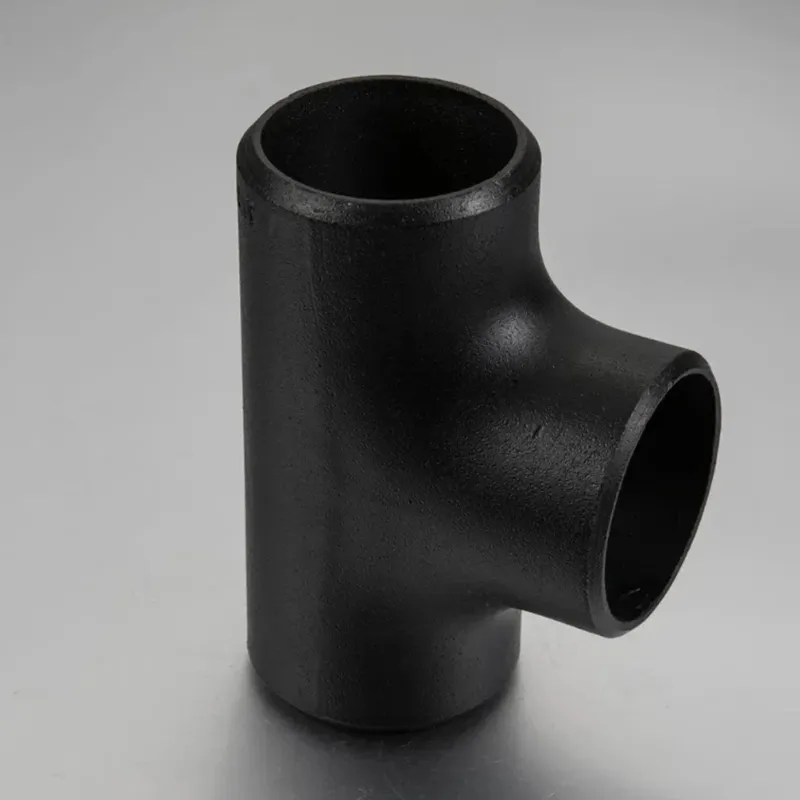-
Cangzhou Yulong Steel Co., Ltd.
-
Phone:
+86 13303177267 -
Email:
admin@ylsteelfittings.com
- English
- Arabic
- Italian
- Spanish
- Portuguese
- German
- kazakh
- Persian
- Greek
- French
- Russian
- Polish
- Thai
- Indonesian
- Vietnamese
- Zulu
- Korean
- Uzbek
- Hindi
- Serbian
- Malay
- Ukrainian
- Gujarati
- Haitian Creole
- hausa
- hawaiian
- Hebrew
- Miao
- Hungarian
- Icelandic
- igbo
- irish
- Japanese
- Javanese
- Kannada
- Khmer
- Rwandese
- Afrikaans
- Albanian
- Amharic
- Armenian
- Azerbaijani
- Basque
- Belarusian
- Bengali
- Bosnian
- Bulgarian
- Catalan
- Cebuano
- China
- China (Taiwan)
- Corsican
- Croatian
- Czech
- Danish
- Esperanto
- Estonian
- Finnish
- Frisian
- Galician
- Georgian
- Kurdish
- Kyrgyz
- Lao
- Latin
- Latvian
- Lithuanian
- Luxembourgish
- Macedonian
- Malgashi
- Malayalam
- Maltese
- Maori
- Marathi
- Mongolian
- Myanmar
- Nepali
- Norwegian
- Norwegian
- Occitan
- Pashto
- Dutch
- Punjabi
- Romanian
- Samoan
- Scottish Gaelic
- Sesotho
- Shona
- Sindhi
- Sinhala
- Slovak
- Slovenian
- Somali
- Sundanese
- Swahili
- Swedish
- Tagalog
- Tajik
- Tamil
- Tatar
- Telugu
- Turkish
- Turkmen
- Urdu
- Uighur
- Welsh
- Bantu
- Yiddish
- Yoruba

Nov . 13, 2024 18:31 Back to list
welded steel pipe
The Importance of Welded Steel Pipes in Modern Infrastructure
Welded steel pipes play a crucial role in numerous industries and applications, from construction to oil and gas transportation. Their versatility, strength, and reliability make them a preferred choice for conveying fluids and gases in a variety of settings. Understanding the significance of welded steel pipes requires attention to their manufacturing process, properties, applications, and advantages.
Manufacturing Process
Welded steel pipes are produced by rolling flat steel sheets or plates into cylindrical shapes and subsequently welding the edges together. This process can be achieved through various welding techniques, primarily including electric resistance welding (ERW) and submerged arc welding (SAW). The manufacturing process typically begins with the selection of the raw material, often low-carbon steel, known for its ductility and weldability. The sheets go through a series of processes, including cutting, shaping, welding, and finishing, to produce pipes that meet the required standards.
Properties and Standards
Welded steel pipes are valued for their high strength-to-weight ratio, corrosion resistance, and versatility. They can be produced in various diameters and wall thicknesses, enabling designers and engineers to meet specific project requirements. Additionally, these pipes are subject to strict industry standards, such as those from the American Society for Testing and Materials (ASTM) and the American National Standards Institute (ANSI). These standards ensure that the pipes are suitable for the intended applications, whether they are for structural purposes or transporting fluids under high pressures.
Applications
welded steel pipe

The applications of welded steel pipes are vast and varied. They are commonly used in the construction of buildings and bridges, as well as in infrastructure projects such as water treatment plants and sewage systems. In the oil and gas industry, welded pipes serve as crucial conduits for the transportation of oil, natural gas, and other hazardous materials over long distances. Furthermore, welded steel pipes are essential in manufacturing processes across industries, from automotive to aerospace, where they're utilized for both structural and fluid transport purposes.
Advantages of Welded Steel Pipes
One of the significant advantages of welded steel pipes is their cost-effectiveness. The manufacturing process allows for the efficient production of long sections of pipe, which can significantly reduce materials costs compared to seamless alternatives. Besides, since welded pipes can be produced in large diameters, they are ideal for applications requiring high volume and flow rates.
Moreover, welded steel pipes exhibit excellent mechanical properties due to the welding process, which reinforces the pipe structure. Their ability to withstand high pressure and temperature makes them suitable for challenging environments, such as offshore oil rigs and high-temperature steam systems.
Conclusion
In conclusion, welded steel pipes are integral to modern infrastructure and industrial applications. Their manufacturing process, properties, and wide-ranging applications underscore their importance in various sectors. With ongoing innovations in welding techniques and material formulations, the reliability and efficiency of welded steel pipes will continue to improve, further enhancing their role in shaping the future of construction, energy, and manufacturing. As we move forward, investing in the latest technologies and best practices in welded steel pipe production will be essential to meet the demands of a rapidly evolving world.
Latest news
-
ANSI 150P SS304 SO FLANGE
NewsFeb.14,2025
-
ASTM A333GR6 STEEL PIPE
NewsJan.20,2025
-
ANSI B16.5 WELDING NECK FLANGE
NewsJan.15,2026
-
ANSI B16.5 SLIP-ON FLANGE
NewsApr.19,2024
-
SABS 1123 FLANGE
NewsJan.15,2025
-
DIN86044 PLATE FLANGE
NewsApr.19,2024
-
DIN2527 BLIND FLANGE
NewsApr.12,2024
-
JIS B2311 Butt-Welding Fittings LR/SR 45°/90° /180°Seamless/Weld
NewsApr.23,2024











